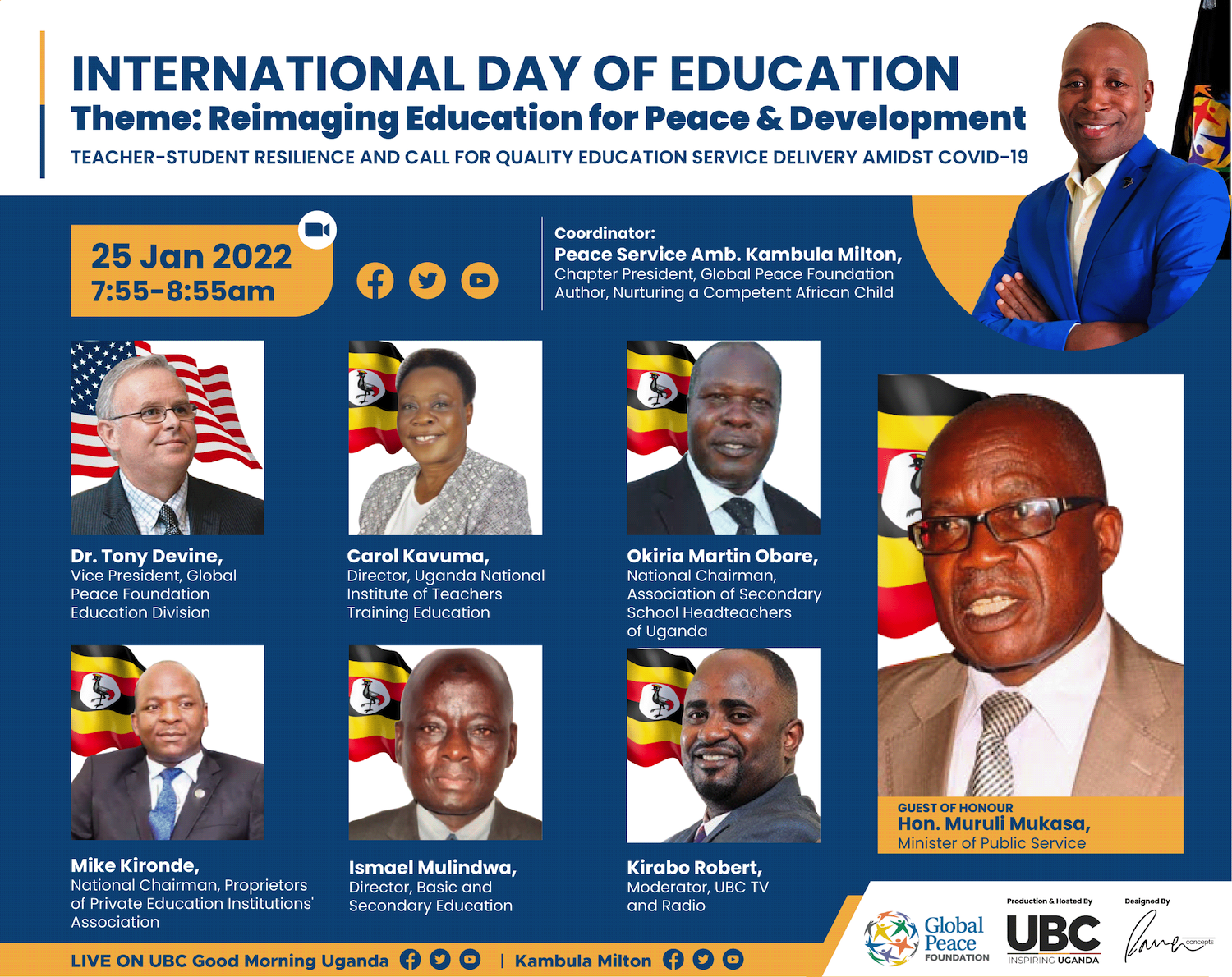International Day of Education 2022
The United Nations General Assembly proclaimed 24 January as the International Day of Education, in celebration of the role of education for peace and development.
Global Peace Foundation (GPF) and Partners: Global Campaign
For 2022 the fourth International Education Day is being acknowledged by Global Peace Foundation and our Partners from January through March 2022.
2022 Theme
“Reimagining Education for Peace and Development”
Peace: There cannot be sustainable development and prosperity without first and foremost having peaceful communities and a peaceful world. This is about people learning to get along beyond the things that separate and divide us such as nationality, race, culture, tribe, religion, etc. Our students who are in our schools today will live through the 21st Century. Educators can nurture them with agency and Moral Leadership competencies in being proactive to build peace.
Development: With peace in place, then we can have sustainable development. Our world has pressing problems that need solutions. Therefore, our students will need to have Innovative Leadership competencies to harness their creative ingenuity to bring about transformative change in all sectors to propel society towards a prosperous future.
Role of Educators
Educators can take on a greater causal role in sensitizing and preparing their students to be agents of peace in their family, school, community, and nation. Peace is anchored in core values, responsibility and living for the greater good.
Role of Students
Our students will graduate into a 21st Century that they will most likely live through. They are, and will be the leaders in all sectors of society. They can play an essential role in advancing peace, trust and harmony guided by core values. They can start preparing for this larger societal role in schools, by investing in various peace, service or other projects that advance the human condition.
Countries Participating
Kenya, Uganda, Northern Ireland (UK), Republic of Ireland, Philippines, USA, Paraguay, Brazil, India, Iraqi Kurdistan, and others.
Kenya, Uganda, Northern Ireland (UK), Republic of Ireland, Philippines, USA, Paraguay, Brazil, India, Iraqi Kurdistan, and others.


